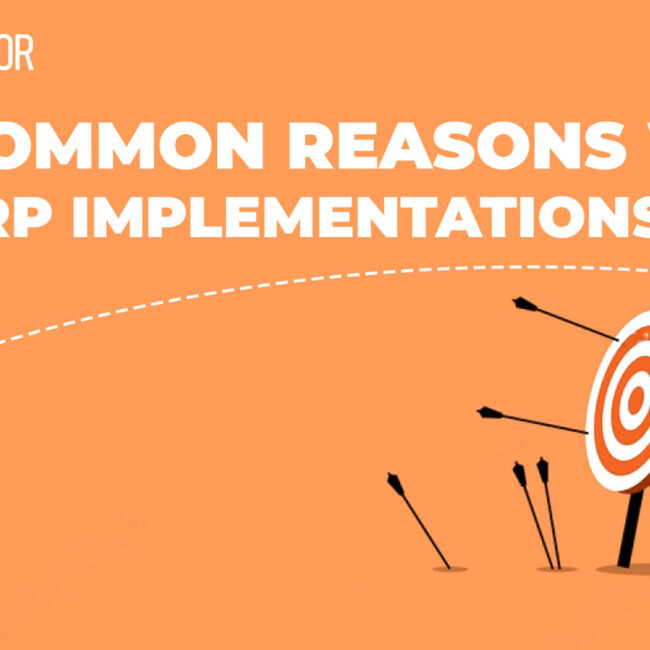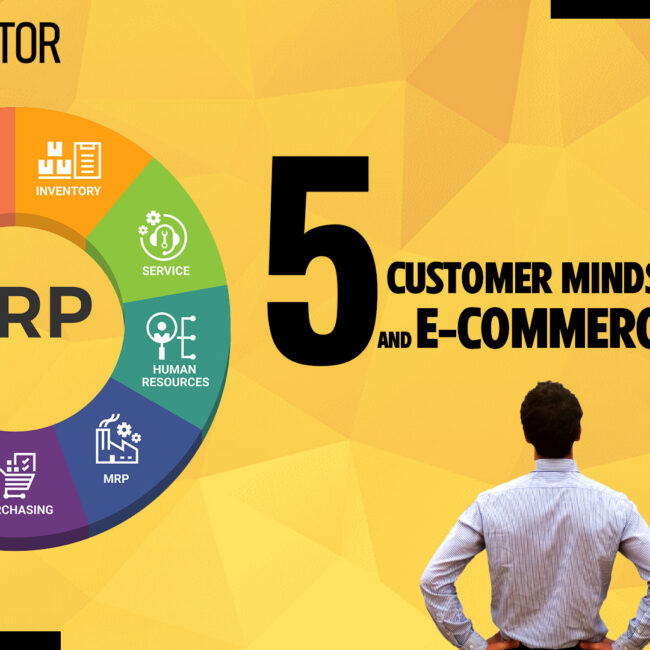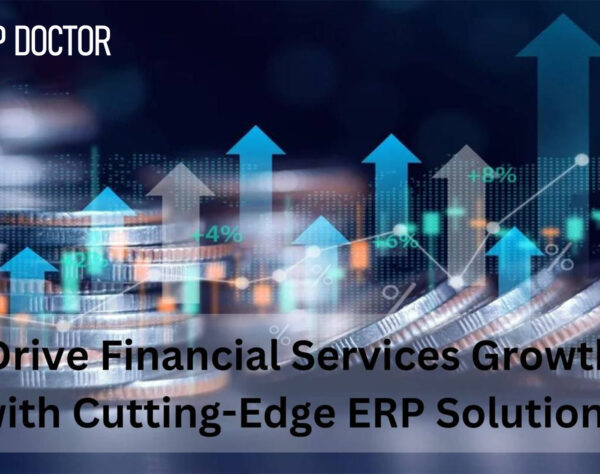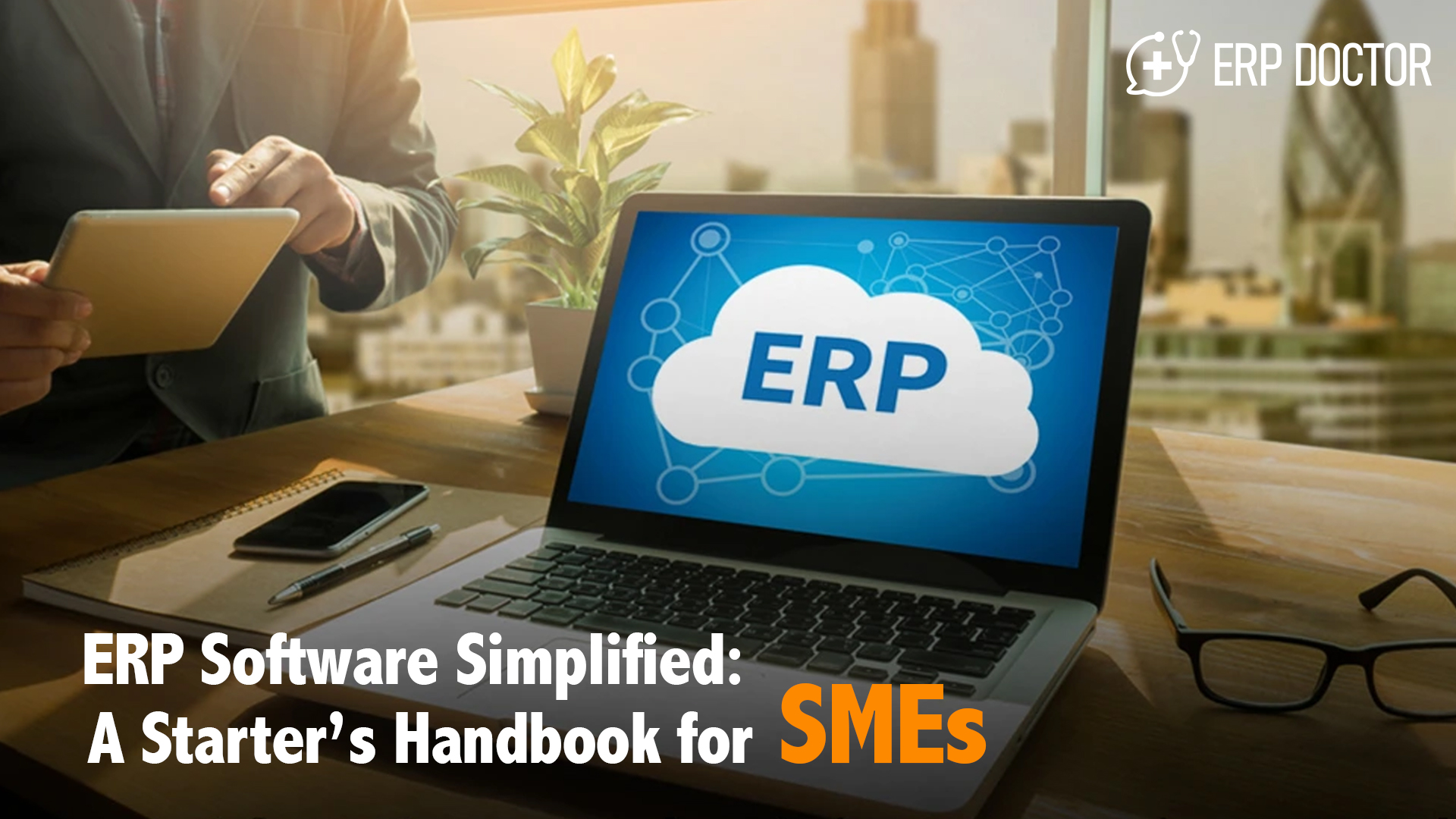
ERP Software Simplified: A Starter’s Handbook for SMEs
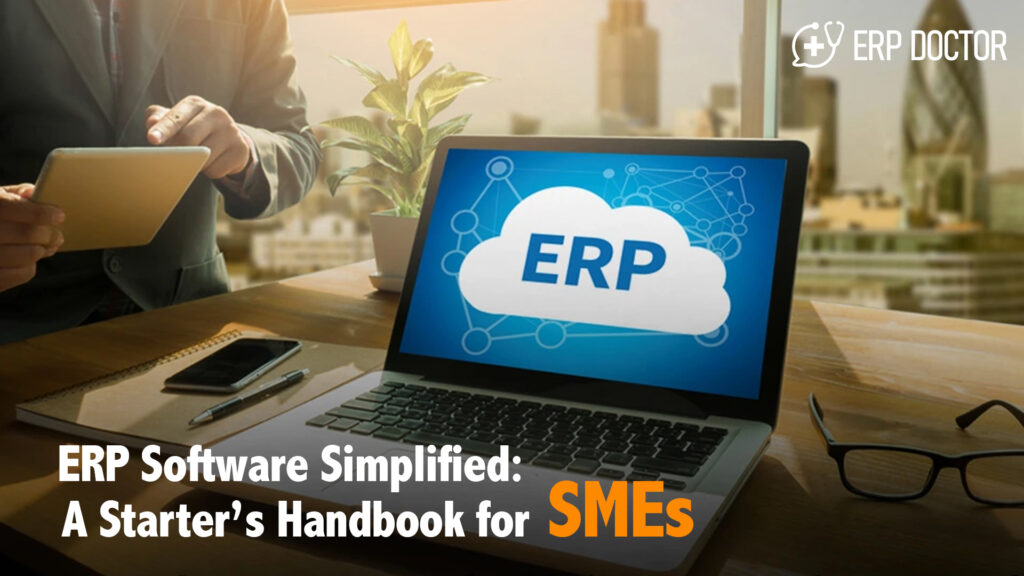
Boosting SME Success: The ERP Essentials
In today’s fast-paced business landscape, Small and Medium-sized Enterprises (SMEs) are increasingly turning to ERP (Enterprise Resource Planning) systems to streamline their operations, enhance productivity, and stay competitive. If you’re new to the world of ERP and are considering implementing an ERP system for your SME, you’ve come to the right place. This beginner’s guide will walk you through the essentials of ERP, ERP software, ERP systems, and ERP solutions to help you make informed decisions for your business.
What is ERP?
Before delving into the specifics of ERP software and systems, it’s crucial to understand what ERP is and why it matters to SMEs.
ERP stands for Enterprise Resource Planning, a software solution designed to integrate and manage various business processes, such as finance, human resources, inventory management, and more, into a single, unified system. This integration helps SMEs streamline their operations, reduce manual tasks, and improve overall efficiency.
The Benefits of ERP for SMEs
Now that you have a basic understanding of ERP let’s explore why it’s essential for SMEs to consider implementing an ERP system.
Enhanced Efficiency and Productivity:
ERP systems automate routine tasks and provide real-time data access, allowing SMEs to make faster and more informed decisions.
Improved Data Accuracy:
With ERP, data is entered once and stored centrally, reducing errors caused by manual data entry and ensuring data consistency.
Better Inventory Management:
SMEs can optimize inventory levels, reduce carrying costs, and enhance supply chain visibility with ERP.
Streamlined Financials:
ERP software helps manage finances, track expenses, and generate accurate financial reports.
Enhanced Customer Service:
Access to customer data and order history empowers SMEs to provide better customer service and build stronger relationships.
Choosing the Right ERP Software
Now that you understand the benefits, it’s time to explore the different types of ERP software available for SMEs.
ERP Software Overview:
ERP software comes in various forms, including cloud-based, on-premises, and hybrid solutions. Each has its advantages and may be suitable for different SMEs based on their specific needs.
Consider Your Business Needs:
Assess your SME’s unique requirements, such as industry-specific functionality, scalability, and budget constraints, to choose the right ERP software.
Vendor Selection:
Research and compare ERP software vendors, considering factors like reputation, customer reviews, and post-implementation support.
Implementing Your ERP System
Once you’ve chosen the ERP software that suits your SME’s needs, it’s time to implement the system.
Planning and Preparation:
Careful planning is crucial for a successful ERP implementation. Define your objectives, assemble a dedicated team, and create a timeline.
Data Migration:
Migrate your existing data into the ERP system, ensuring accuracy and completeness.
Training:
Train your staff to effectively use the ERP system to maximize its benefits.
Maximizing the Value of Your ERP Solution
Congratulations! You’ve implemented your ERP system. Now, it’s time to make the most of it.
Continuous Improvement:
Regularly evaluate your ERP system’s performance and seek opportunities for optimization.
Integration:
Consider integrating your ERP system with other business software to further enhance functionality.
Stay Informed:
Keep up with industry trends and updates to ensure your ERP system remains relevant and effective.
In this beginner’s guide, we’ve explored the world of ERP, its benefits for SMEs, how to choose the right ERP software, and the implementation process. ERP systems can be transformative for small and medium-sized enterprises, providing the tools needed to compete in today’s market. By following the steps outlined in this guide, you’ll be well on your way to harnessing the power of ERP for your business’s success. Start your journey towards efficiency, productivity, and growth with the right ERP solution today.
Embark on an inspiring journey today – Visit our website and discover a world of knowledge, creativity, and endless possibilities! Don’t miss out on exclusive content and exciting updates. Click here to explore and be part of our thriving community!


